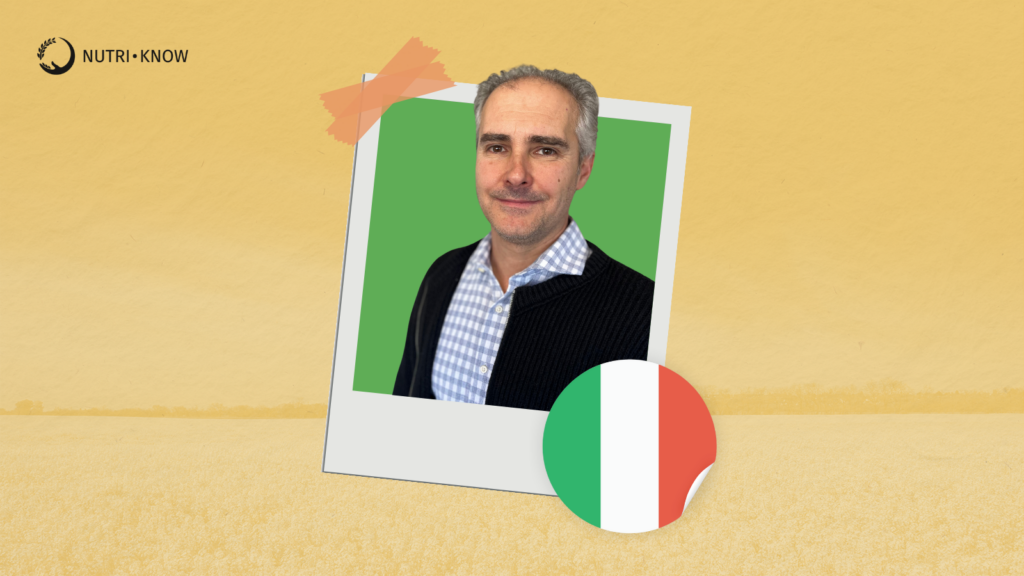How can Italian farmers embrace sustainable nutrient management while maintaining economic viability? Giuseppe Moscatelli from CRPA discusses the need for mindset shifts, innovative fertilisation techniques, and the role of financial incentives in driving change towards environmental sustainability.
The interview has been edited for length and clarity.

What do you think are the key nutrient management challenges for Italy’s farms?
We need to offer awareness and knowledge to the farmers on the importance of proper nutrient management. In the face of hearing “we’ve always done it in this way” we need to demonstrate with scientific and well supported data that improper nutrient management causes environmental problems and depletes natural resources that will no longer be available in the future.
I think the main challenge is the change of mentality, without forgetting that in some cases economic investments are needed in a sector where sometimes the profit margins are small and the market fluctuations are high.
How do technological advancements in agriculture contribute to Italy’s environmental sustainability? How do you think these advancements can help keep farming economically viable?
To be economically competitive in a global world, Italian agriculture must focus on product quality and environmental sustainability.
If it focused only on quantity, it would be defeated by other realities (American, Russian or Asian). Italy is characterised by a fragile environment, rich landscapes and a high-value tourism sector. For these, environmental and social sustainability cannot be considered separately in the future.
This is only possible with technology and research. Progress in technology as well as environmental and resource management can reduce impacts while maintaining the same quantity of production in areas such as milk, meat, crops, and more.
Could you share an example of a specific innovation from your group and explain its impact on sustainable farming practices?
CRPA and our other partners have developed an integrated system for filtering the digestate from manure and injecting it, mixed with irrigation water, in sub-irrigation drip lines buried at 30cm to fertilize the crops. This innovation allows for minimal soil tillage, increasing organic matter, efficient nutrient management and saving water.
What types of financial incentives or support structures in Italy encourage the adoption of sustainable farming technologies? Are there support structures in other countries that you think could work in Italy?
Italian regions with funding linked to the Rural Development Programmes finance a share (%) of investments in innovations to increase environmental sustainability of the farms. For example, regions with European funds have financed the coverage of storage slurry facilities to reduce ammonia emissions, the purchase of slurry application systems for the direct incorporation of slurry or digestate into the soil or by low-emission systems.
What strategies in your view are effective in balancing the economic needs of farmers with environmental sustainability goals?
I think we need knowledge communication and training strategies (practical communication with demonstrations and visits to real case studies), accompanied by funding. Communication and training both aim at farmers and technicians, and political or government actors. We need core funding for projects that create innovative, demonstrative and real case studies. Often in the agricultural context, innovations spread if they are seen first hand, if there are concrete examples and if the costs are clear.
What feedback have you received from farmers who have implemented new technologies or practices?
Generally they are satisfied, even if they do not hide that the implementations have involved effort. Especially technologies that make work easier and save manpower receive great feedback.
Did you learn anything new from your work in NUTRI-KNOW in your area of expertise?
A lot. The project showed me what could be the bottlenecks to the innovation’s amplification, improved my European vision of the agricultural sector, and let me get in touch with solutions that can be useful and promoted in my region. Very importantly, NUTRI-KNOW has allowed me to meet organisations and people who work on the same topics.